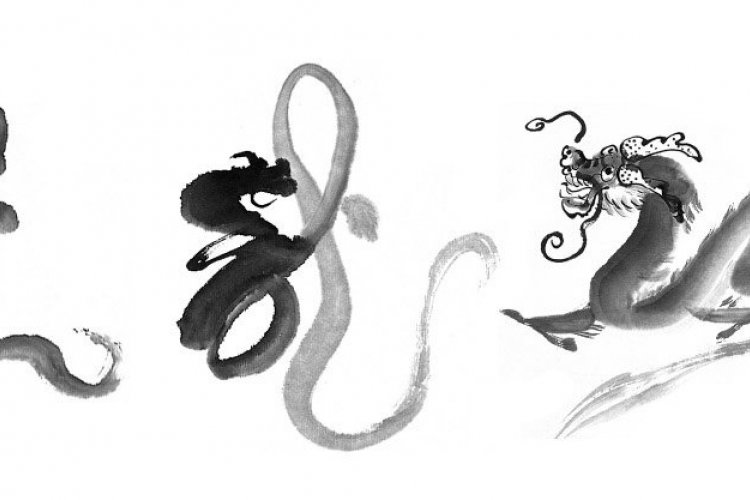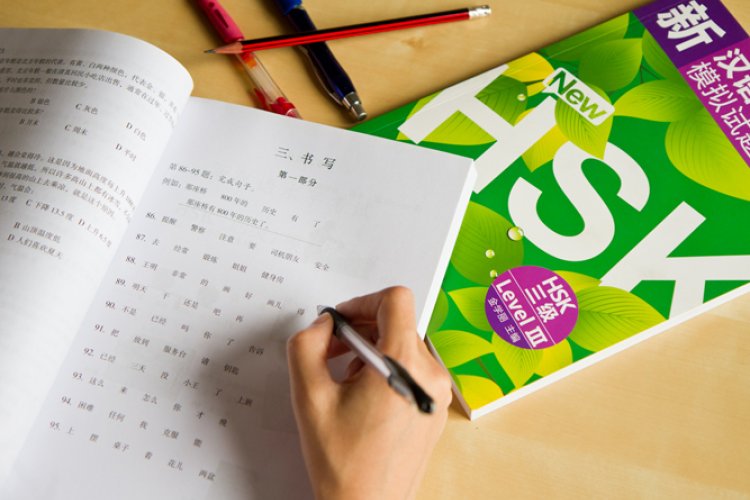" I say a simple thank you – "xiexie ni" – only to have the taxi driver respond, "Eh"? "
I think chinese ppl normally use this phrase "xiexie ni"....Maybe that shifu (taxi driver) was from some other province? and he is not use to laowais chinese? XD
The Lighter Side of China: Lost in Translation
Part of the fun of learning Chinese is being made fun of. That’s my view, anyway.
Being tone-deaf with a Midwestern drawl in a tonal language does not help. More than once I have found myself short of patience when I say a simple thank you – "xiexie ni" – only to have the taxi driver respond, "Eh"?
"Xiexie ni," I repeat. ("Thank you.")
"Ting bu dong," he responds. ("I have no idea what you're saying.")
I’ve never gotten too hung up about being misunderstood, though. I have been the brunt of many jokes related to my language skills and I have certainly heard hundreds of similar stories related to language mishaps in China.
Amongst my favorites involves a very dear Argentinian friend. For six months, when he entered his office he greeted his staff with a smile and a heavily accented “Zao” (“Good morning”). Yet, depending on the way this word is launched – as it was from his Argentinian lips – it can sound like an ugly obscenity in Chinese. This came to an end when a trusted colleague whispered that he was in effect swearing at his colleagues every morning. This Argentinian turned red with embarrassment.
I often wonder whether the person who created the language and the tones took delight in challenging those people who can’t just get it right. With a slight mispronunciation, a pleasant greeting becomes profanity and a writing instrument can become a gross description for women’s private parts.
In the business world, of course, getting language right involves higher stakes than mere comic relief.
In most circumstances, foreigners operating business in China employ interpreters or translators. After 20 years in Asia I am not sure what the difference is, although I do have greater expectations when working with a United Nations-trained interpreter than I do with a translator. (These folks also normally charge rates that come with United Nations distinction.)
Failure to have a proper interpreter can be detrimental. I have attended more than a dozen conferences when a foreigner is speaking in English and it is clear that no one is interested or understands a word of what is being said. Yet, in almost all instances, after a very determined monologue by the designated speaker, supported of course by some very text-heavy PowerPoint slides, the Chinese audience, on cue, erupts with applause. After 17 years here in China, I have not figured out if this applause is a genuine thank-you to the speaker for coming to share their expertise in China or for finally bringing the speech to a close.
Needless to say, getting a good interpreter is the first step to being successful in China, which reminds me of my very favorite tale of a press conference. It was nearly a decade ago, and the setting was the China World Hotel. Some 40 journalists had turned up to hear the Cotton Council of the United States discuss their plans for collaborating with China.
Among the spokespeople was a very kind and delightful representative of the Cotton Council, a gentleman in his early sixties, somewhat short and thin. He was a cotton farmer from the Deep South – from Alabama, as I recall. Without having had much time to rehearse, this cotton farmer stood up and gave his remarks. We were using consecutive interpreting at the time (not simultaneous), which meant the speaker would say a few words and then pause for the interpreter to convey his remarks in Chinese.
Well, not this interpreter and not in this instance. This cotton farmer from Alabama had such a deep accent that the Chinese interpreter could not understand a word he said. Silence filled the room, and anxious awkwardness overcame everyone. The cotton farmer was very calm. He was very much a gentleman, but clearly taken by surprise by the silence.
What to do?
Well, yours truly tried to step in to interpret for the interpreter … only to find that I too, could not understand the farmer’s speech. I had spoken with him briefly in advance of the press conference, but not enough to catch the nuances of his heavy Southern drawl. As I tried to save the situation, getting tongue-tied in doing so, the journalists in attendance chuckled at my struggle.
Fortunately the conference was saved by having the Chinese Cotton Council representative speak on behalf of the visiting dignitary. So much in China is taken for granted if there is an interpreter present. But the lesson here is that sometimes even a competent interpreter is not enough to save the day.
Speaking of competent interpreters, this experience pales in comparison to something that made its way into my email box late last year. It is said that laughter extends life and if that is the case, I have this person to thank. The email read:
“Hi Scott:
Trust this note finds you very well! By now, you've probably heard [the news story] about the dog sitting at its owner' gravesite, not wanting to eat or leave. Perhaps your mom has told you some about my Spirit work and particularly my work as an Animal Communicator. I'm sending this article along to you because it not only tugs at my own heartstrings, but because it's at your back door! It's around Beijing!!
I know you don't have time for this sort of thing, but maybe you know someone whom I can converse with and help them to help this poor, loyal and confused dog ... to have a happy life and not guard his departed humans' gravesite for the rest of his life!! While I'm not in China, I could email and or speak by phone with someone who could translate into the dialect that the dogs' human spoke, so he can understand ... and I'll tell them what to say and how to say it.
Sorry to bother you and if, as I suspect, you've no time for this ... at least, thanks for your consideration!”
Let me clarify this is not intended to make fun of any animal communicators out there. For the record, in my youth I was a very big fan of Dr. Doolittle. But it makes me wonder though why there are dog communicators, but not alligator, ant or raccoon communicators.
What threw me for a loop, though, was the translation method proposed in the email. It’s difficult enough to get interpretation right from English to Chinese and vice versa. But from English to Chinese to Bow Wow? I just don’t know how that works.
My wife, who is Chinese, tells me to start by getting the basics right. “Bow Wow” in Chinese is “Wong Wong.”
Go figure.
Scott Kronick is president of Ogilvy Public Relations Worldwide, North Asia.
Photo: CBM Imports






